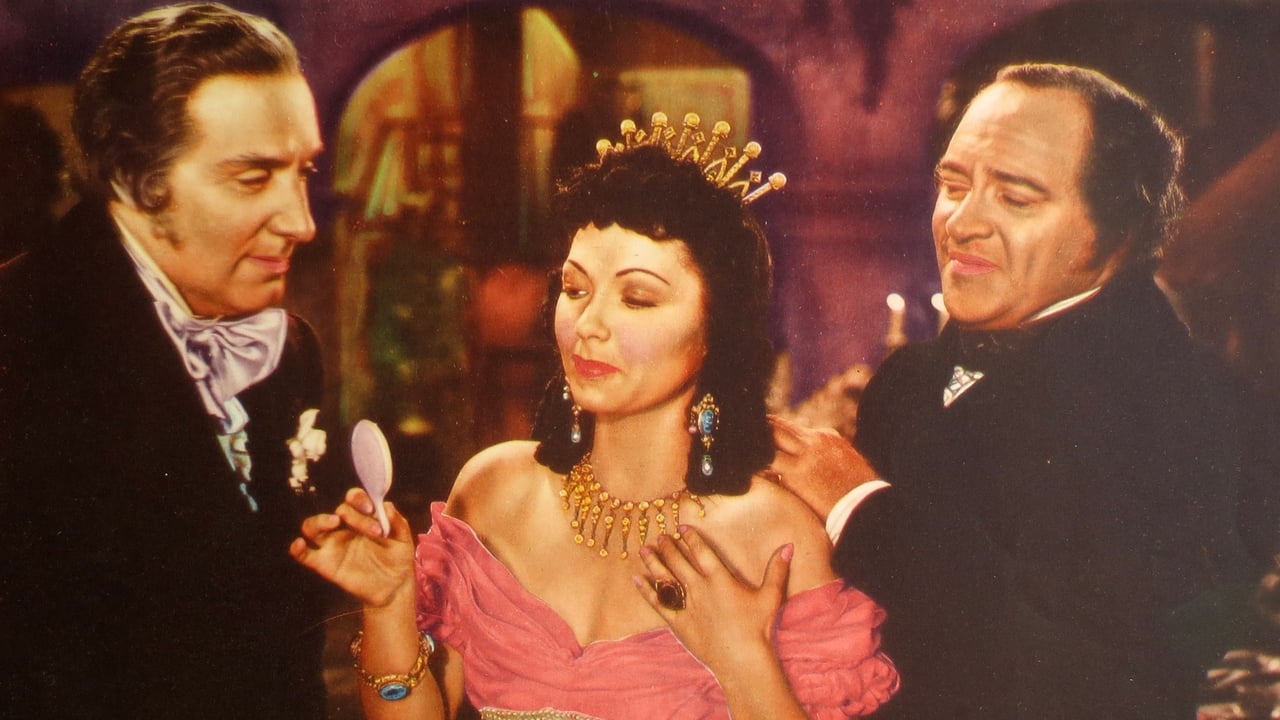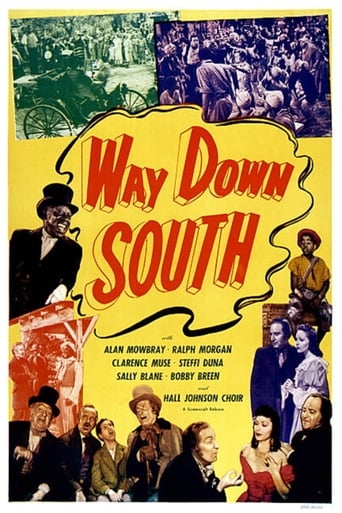Softwing
Most undeservingly overhyped movie of all time??
Huievest
Instead, you get a movie that's enjoyable enough, but leaves you feeling like it could have been much, much more.
Delight
Yes, absolutely, there is fun to be had, as well as many, many things to go boom, all amid an atmospheric urban jungle.
Cheryl
A clunky actioner with a handful of cool moments.
utgard14
An orphan in pre-Civil War Louisiana fights to save his late father's plantation (and his slave friends!) from a crooked lawyer's machinations. Oh boy will this one set some alarms off today. Probably the only reasons it isn't more hated is that (a) it is not as well-known as, say, Song of the South and (b) the script was written by two black men -- noted poet Langston Hughes and actor Clarence Muse, who also appears in this film as Uncle Caton. The star of the movie is Bobby Breen, a Canadian-born soprano with a brief acting career who is just about the corniest thing I've ever seen. The rest of the cast includes Alan Mowbray, Ralph Morgan, Matthew 'Stymie' Beard, Sally Blane, Edwin Maxwell, and the aforementioned Clarence Muse, who is probably the best part of the film.It's not a bad movie if one can put aside one's political correctness. The short runtime helps. I'm not saying it's great or anything. Breen is an acquired taste and the depiction of slavery is...well, controversial is the kindest way of putting it. That being said, the slaves are positive sympathetic characters all and written with more respect than is usual for the period. That is likely thanks to Hughes and Muse. One also has to wonder if some hidden meaning was in the scene where Ralph Morgan's "friendly massa" character dies. Watch and you'll probably see what I mean. There's some singing, as you might expect from a movie starring a boy soprano. Frankly, I enjoyed the singing from the Hall Johnson Choir more than Breen. The historical qualities of the film alone should warrant viewing but it does have entertainment value, as well. I encourage everyone who is interested to give it a shot and judge for yourself instead of making up your mind before seeing it. The same goes for any old film that is considered controversial or offensive today.
MartinHafer
"Way Down South" is based on a story by Langston Hughes and the screenplay was written by Clarence Muse--who also was a major character in the film. "Way Down South" is bound to play a lot differently today than when it debuted in 1939. The notion of happy and well-fed slaves is far from politically correct and I am sure many will blanch at this antiquated view of the Old South. While I am sure some slave owners were more benign in how their treated blacks, they still were slaves!! Oddly, Hughes and Muse were black men and, in an odd way, the film was progressive for its time as it promoted fair treatment of blacks...but they still were slaves!! The film stars one of the more unusual stars in Hollywood history, Bobby Breen. Breen was a child star who only appeared in nine films--though they were starring roles. His AMAZING voice cannot be described--you just need to see and hear him for yourself. The films he made were mostly pleasant but forgettable pictures--though it's easy to like the boy in the films as he always seemed incredibly nice.When the film begins, Bobby is very happy and the family's slaves on the plantation are equally happy. In fact, Bobby's best friend is one of the slaves (Stymie Beard of the Our Gang films)! But, when Bobby's father dies unexpectedly, his father's executor comes in and dramatically changes the place--selling slaves and beating them soundly. But Bobby can't stand to see his friends treated that way. Plus, what he doesn't know is that the executor actually is planning on taking EVERYTHING for himself! What's to happen of Bobby and the happy slaves?! This is an odd film in that it IS entertaining but it is a bit uncomfortable as well due to the odd subject matter. Well made but weird...that's for sure!
Michael_Elliott
Way Down South (1939) ** 1/2 (out of 4) Interesting race picture from RKO features two black writers (Clarence Muse, Langston Hughes) doing the screenplay. Set before the Civil War, a plantation owner dies leaving his farm and slaves to his young son (Bobby Breen). Soon an executive comes into play and tries to sell the slaves but the young kid won't stand for this as the slaves are his only friends. It's interesting to see a Hollywood picture from this era treating blacks with any sort of respect and in many ways it's more respectful than many of the other race pictures that I've seen, which were made by black directors. The film only runs 61-minutes so the drama of slavery isn't ever really looked at and the film would later be criticized by the NAACP for showing "happy slaves". The films main goal is to have a spotlight for the young Breen and he's pretty good here, although his musical numbers aren't anything special.
ivan-22
I liked everything about this forgotten, unpretentious, good-natured, well-made film ahead of its time regarding "the race problem". It delivers far more solid good time than many a famous films. It's a thrill to see nothing but unknown actors, all of them good. Bobby Breen is also an exceedingly confident and accomplished singer.

